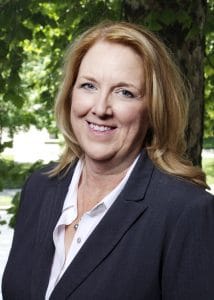
As students research which business school would be their best option, they look at what essential elements comprise the programs, degrees, and overall educational experience. Prospective students can find data on tuition, course credits, and prestige, but what is the story behind the data? What is the business school really like? College Consensus had the privilege of connecting with Dr. Robin Sronce, Dean of the Rankin College of Business at Southern Arkansas University to get the story.
Located in Magnolia, Arkansas, on a beautiful 1,491 acres of land, the University began in 1909 and is regionally accredited by the Higher Learning Commission. The naming of their unique mascot, the Mulerider, dates back to 1912 when several football team members rode mules over to their coach’s house. It was the most reliable, smartest animal, and most used in agricultural work in the South where there were no paved roads and barely any cars.
The AACSB-accredited Rankin College of Business has been educating future business leaders for many years. They offer a wide range of undergraduate degrees, including an Associates in Business Administration. The BBA offers emphasis options in General Business, Accounting, Management, Entrepreneurial Finance, Marketing, Financial Analysis, Financial Planning, Supply Chain Management, or Information Systems. Graduate students can pursue a Masters in Business Administration with options in Agri-Business, Social Entrepreneurship, or Supply Chain Management. And for a flexible, convenient, more affordable option, there are the online Bachelors in Management and online MBA degree programs. The online MBA was recently ranked in College Consensus Most Affordable Online MBA Programs Ranking. The Rankin CoB produces award-winning students who win competitions like at the recent 2019 Phi Beta Lambda National Leadership Conference.
College Consensus: Please tell us about your business school and what makes it unique?
Dr. Sronce: The Rankin College of Business (RCB) at Southern Arkansas University has a well-earned reputation for providing a world-class business education in a personal environment, as evidenced by our accreditation by AACSB International.
Programs are available in general business, accounting, marketing, information systems, finance, entrepreneurship, management, and supply chain management. SAU students can choose a focus that suits their talents and career goals. With our faculty serving as mentors and advisors, students have someone that will guide them through their chosen program and beyond.
The Rankin CoB offers important academic enrichment programs that give students chances to network with business and industry leaders while also learning about professional development and career options. The Executive Network Conference also provides students with opportunities to interact with successful alumni.
Our active ENACTUS Team, nationally recognized PBL Chapter, the Business Student Investment Advisory Council, the Business Student Advisory Council, Beta Gamma Sigma National Honor Society, and the Emerging Entrepreneurs club offer business students opportunities to build relationships with peers and develop their leadership skills.
Students are encouraged to pursue internships, and faculty help guide them through the process. Support through programs like the Career Closet, which helps with professional outfits and resume and interview workshops, prepare them for the annual career fair and job interviews.
The College also seeks to improve business and education in our state and region. The Arkansas Small Business Technology Development Center helps small businesses and individuals achieve their dreams. The Center for Economic Education and Research (CEER) works with Economics Arkansas to prepare K-12 teachers to provide excellent economic education.
Many of our students are first-generation college students from the region, many who come to us with limited knowledge of the opportunities open to them and expect to remain in the area upon graduation. By engaging them with community and business professionals (who are often alumni), exposing them to travel and other opportunities outside our region, and equipping them for the transition from the classroom to their careers, we prepare them to follow in the footsteps of our many successful graduates.
College Consensus: What do you look for in successful applicants to your business school?
Dr. Sronce: Successful applicants come from a variety of backgrounds. Generally, they have common qualities of a commitment to improvement through education and willingness to try new experiences. If they are willing to put in the necessary work, we can provide the tools for gaining the knowledge that will help them meet their career goals.
College Consensus: How do you support your business students to leverage them into a career after graduation?
Dr. Sronce: At the MBA level, our Field Experience Class provides an opportunity for students to have hands-on experiences while earning their degree. This experience is especially important for students entering the MBA directly from the undergraduate program since they are less likely to have significant work experience. The first students taking advantage of this program were assigned to work at “SAU Beyond the Campus,” the University’s store in downtown Magnolia. Three MBA students co-managed the facility and were responsible for stocking, staffing, marketing, and all other management operations.
Through collaborative work with the Arkansas Small Business Technology and Development Center (ASBTDC) and other professional connections of our faculty, students have the opportunity to work on real-world projects with business professionals and the organizations they lead. From 2014 to 2019, approximately 200 students, both undergraduate and graduate, worked with over 40 businesses to conduct market research, integrated marketing campaigns, social media campaigns, risk assessments, human resource management activities, and other projects. Many of the student teams participating in these projects have the opportunity to make formal presentations to their classes and to the business leaders with whom they have worked. The results are benefits to the business professionals and preparation for our students. We are graduating students ready to lead and take on new challenges. Three recent examples from our MBA in supply chain management are:
- Devin Patterson (MBA, Supply Chain Management, 2017) promoted to procurement supervisor after receiving his MBA and is now leading a multimillion-dollar project.
- Kathryn (Sandry) Bettis (MBA, Supply Chain Management, 2017) received a promotion as a planner and then took a position as a project manager at Aerojet.
- Brooke (Williams) Garcia (MBA, Supply Chain Management, 2017) was hired at Aerojet a few weeks before officially acquiring her MBA and is using the knowledge gained in the MBA program to excel in her new position.
Programs like our Backpack to Briefcase, The Executive Network, and RCB on the Road introduce them to alumni and business professionals that can provide them advice, examples, mentorship, and inspiration.
College Consensus: Is there anything going on within your business education community that you are particularly excited about?
Dr. Sronce: The RCB, in collaboration with alumni and community stakeholders, has developed several programs to strengthen the professional skills of our graduates. Through these programs, our students have the opportunity to engage with each other, faculty, alumni, business professionals, and business executives. During our most recent Backpack to Briefcase (B2B) week, for example, 30 professionals presented 11 sessions that reached 360 participants. A highlight of the B2B program is the Mock Interviews with our Emerging Leaders Council (ELC), our advisory board for recent alumni. In addition, members of our Business Student Advisory Council (BSAC) have lunch with the RCB’s Business Advisory Council (BAC) every semester.
The College holds regular Lunch with the Dean sessions for students in each major, often inviting industry guests. Accounting students interact with the members of the Arkansas Society of CPAs (ASCPA) and attend a variety of dinners and workshops, including a Women’s Leadership Symposium sponsored by the Society, at which SAU was the first Arkansas university to sponsor student attendees. Finally, The Executive Network (TEN) is an annual on-campus conference that brings successful alumni—those who have reached the executive level in their careers—back to campus each spring to share their experiences and advice and to interact with current students over two days. In spring 2018, eleven executives presented 23 sessions for over 700 attendees. The 2019 event expanded to include thirteen presenters and over 800 attendees.
College Consensus: What can you tell us about your online offerings?
Dr. Sronce: All faculty providing online classes are now required to complete Applying the Quality Matters Rubrics workshops. Our full-time faculty teach in both the online and seated courses. The BBA in Management can be completed online as well as the MBA. We have a dedicated online advisor for the BBA program, and classes occur on a rotation which encourages timely completion.
College Consensus: Anything else you’d like to say about your programs and school?
Dr. Sronce: Listed below are examples of engaging, active, and impactful learning opportunities.
Curricular Projects
- Internships. Students are encouraged to engage in internships. Workshops with advice on obtaining and being successful in internships held throughout the year. The faculty internship advisor actively recruits students to fill internship requests by local and regional companies. The RCB holds information sessions about internship opportunities for each of its majors. Our Advisory Council also supports college internships financially and has pledged funding to help students with the Internship Away Scholarship Program.
- SAU Beyond the Campus, a storefront on the Magnolia town square owned and operated by the University, is managed by MBA students. In this innovative program, students receive academic credit for their work, as well as practical experience. (The facility also provides work opportunities for BBA students.) These MBA students are responsible for all areas of the operation, including staffing, stocking, and advertising. This program provides them with leadership experience as they make decisions, interact with outside agencies, and supervise undergraduate student workers.
- VITA. Our accounting faculty added a VITA (Volunteer Income Tax Assistance) internship beginning in 2019. This is an important service for our region and a program that engages students in practical experience that will be invaluable to their professional growth. The first year, three students completed 40 hours of training, prepared 51 tax returns, and contributed 90 hours of volunteer service in the program.
- The RCB on the ROAD program is designed to provide additional impactful experiences for students, creating opportunities to interact with professionals across the region. While in the past we have tried to provide some local travel funding for students, our innovation here is to effectively package resources by enlisting Advisory Council support and increasing intentional engagement across the majors. In 2018, accounting and finance students traveled to Coushatta, Louisiana, to visit an operating gas rig and learn more about opportunities in the accounting field for those interested in this important regional industry. In the spring of 2019, students traveled to Fort Smith, Arkansas, on a trip sponsored by Advisory Council member Don McDonald. The visit to Fort Smith included presentations from ArcBest, a major employer for logistics, information systems, and management trainee positions in Arkansas and nationally; the Don McDonald Group and regional Merrill Lynch leaders; and First Financial Bank of Fort Smith, where students learned about community banking.
- Class projects. In 2017, the Information System and Marketing faculty worked together to design a social media class. This class engaged students and the community by becoming a hands-on laboratory. The hands-on project brought increased collaborations between local businesses and the RCB. After a successful first year partnering with stores on the Magnolia square, nearby business organizations reached out to the course instructor, asking for inclusion to the list of those working with students in the class.
- In MGMT 6013: Human Behavior in Organizations, students have consulted with several businesses to help match personality type of employees to job positions. For example, one employee at Ace Hardware was in a job not suited for his personality and was giving the manager significant trouble. The manager moved him to a position which was more suited for his personality and it saved his job.
Co-Curricular projects
- The Enactus program added an advisory council this year and benefited immediately from additional interactions with informed business leaders. Through these discussions and contacts, students came up with a project that partnered them with Magnolia Specialized Services (MSS), a local organization providing services for developmentally delayed adults in Magnolia. Enactus secured a sales outlet for Magnolia ceramic paperweights and other craft products made by the MSS clients at the SAU Beyond the Campus store. Students not only benefit from the retail experience but truly impacting students with the relationships they are developing with the clients at the agency.
- Phi Beta Lambda (PBL) has a long history at Southern Arkansas University. Numerous alumni come back and talk with students about how their experiences in this group prepared them for their careers and were a key to their growth during their time in college. We recruit heavily for students to participate in the PBL competitive events program. We find that after the experience of competing, students come back enthused to be part of the group the following year. We have a tradition of leadership in the organization, and SAU member Micah Larey served as Arkansas PBL state president for the 2018-2019 year. Our PBL organization has earned over 1,300 awards. At our spring Executive Network event, Micah was able to meet alumnus Roger Maloch, Chief Financial Officer at Digital Architecture, who had served as PBL state president over 40 years ago.
- The Business Student Investment Advisory Fund is managed by the Business Student Investment Advisory Council. The purpose of the fund is to help students manage a portfolio with a conservative approach and learn about financial markets and financial analysis. Established in 1997 with a $20,000 gift from one of SAU’s alumni, in the last 22 years, the fund has grown to $120,994, a growth rate of approximately 8.52% per year, outperforming both the Dow Jones Industrial Average Index by 3.9% and the S&P 500 Index, by 6.38%.
- Accounting students annually network with the Arkansas Society of CPAs by traveling to Little Rock for conferences and hosting CPAs at dinners held at SAU. Our faculty are active in the organization, with Ms. Nations serving on the Board of Directors and Dr. Warrick serving as Chair of the Continuing Professional Education Committee.
Engagement with Professionals
- Our students have opportunities to interact with professionals in our Backpack to Briefcase week and at The Executive Network conference. We allow time for discussion between our Advisory Council members and students during lunches and informal mixers. One example of the success of this initiative is the mentorship relationship that developed between one of our senior finance majors, Kile Pletcher, and Advisory Council member and healthcare CFO John Armour. They shared a mutual interest in the healthcare industry, and with Mr. Armour’s advice and help, Kile was able to secure a position in the industry.
 Crucial Characteristics
Crucial Characteristics
Professional Preparedness: When students attend a business school, they go into it wanting to learn as much foundational business knowledge as possible and be able to graduate with the confidence that they have been professionally prepared to enter into their desired career. The College helps prepare students for internships through a faculty internship advisor, and workshops on how to find the right internship and how to be successful within it. They have several resources that help prepare students to know how to interact, dress, and navigate jobs professionally. There are career fairs and workshops for resume building, interview preparations, social media resources, business etiquette, job searches, and more. The Rankin CoB has thoughtfully placed support systems, with programs and even Career Coaches, at every turn on the road from education to career. They are intentionally placed to help students make the best decisions throughout their educational path to get them to their career of choice.
Executive Engagement: It is vital to the overall educational experience for business students to be able to hear from and work with business professionals and executives during their time in college. Rankin College of Business places incredible importance on providing numerous opportunities for students to engage with executives and businesses in the local and regional communities. The Executive Network Conference gives students the opportunity to hear from and interact with successful alumni who have become executives in their career. RCB on the Road is a program that all majors participate in, where students travel to business locations and take part in learning, first-hand, from the leaders about how different businesses operate. There is a unique opportunity for students in every major to have lunch and interact with the Dean personally. The mentorship that students receive through their engagement with executives is priceless.
Experiential Learning: Rankin provides ways for students to work on real-life business projects for hands-on experience. Students have multiple ways to gain real-word experience with local organizations, including the partnership with the Arkansas Small Business Technology Development Center and the SAU Beyond the Campus. Rankin also provides an internship called Volunteer Income Tax Assistance, where accounting students provide tax services to the community. Experiential learning is a necessary part of the process to successfully prepare future business leaders.
